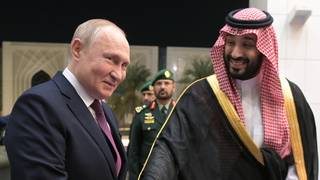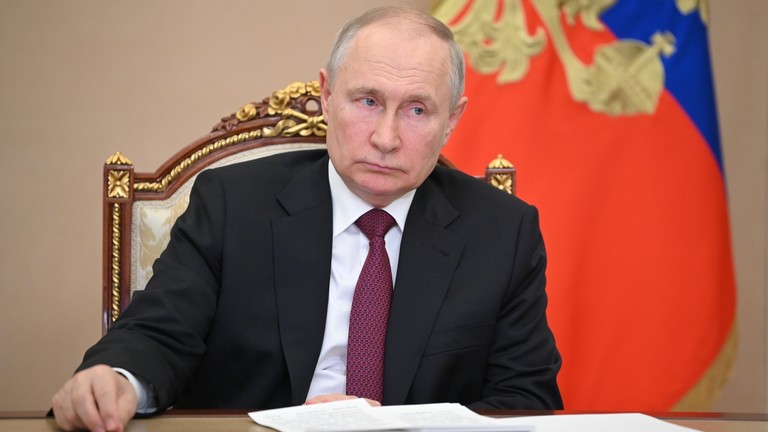President Tinubu and the exigency of fuel subsidy removal

By ỌBA ABDULAZEEZ ADEBAMIJI
President Bola Ahmed Tinubu’s pronouncement that the era of fuel subsidy is gone on the day of his inauguration as the 16th President of the Federal Republic of Nigeria on May 29, 2023 triggered a kind of hot debate across the country. While some see only the timing as inappropriate, others are of the opinion that the removal is uncalled for. The purpose of this little contribution to the debate is to give an indepth explanation of the concept in a clear language for the understanding of the common man.

Those who are against the removal of fuel subsidy hinged their argument on the unavoidable hike in pump price of petroleum and its negative effect on the cost of living. The bandwagon effect on cost of transportation as well as the exorbitant prices of goods and services are the realities of life which no Nigerian can shy away from. However, those who are in support of the removal are aware of the fraudulent act involved in the administration of the subsidy.
What is Fuel Subsidy?
In a simple language, to subsidize fuel is to sell the product below the cost of production that is borne by someone else. Government shouldered this burden to enable fuel to be sold at a lower price purposely to ease the impact of higher price on the masses. Therefore, fuel subsidy can be described as a government effort in paying for the difference between the pump price of fuel at the petrol station and the actual cost of production/ importation of the product.
The noble idea of subsidy dated back to the early 1970s, and it actually became institutionalized via the promulgation of the Price Control Act of 1977. This made it illegal for public goods including petroleum to be sold above the regulated price. However, the Nigerian factor has turned the intention of government to a mirage due to poor administration which paved the way for corruption. The Nigerian National Petroleum Company (NNPC) reported that in the year 2022, daily consumption of premium motor spirit, otherwise known as petroleum rose to 103 million litres out of which about 58 million were smuggled out to neighbouring countries due to the porosity of the Nigerian borders. Invariably, this simply means that the government of Nigeria, at the detriment of the economy, has been subsidizing fuel being used in those other countries.
Similarly, the NNPC revealed that in October 2022, petrol subsidy alone stood at ₦199 billion while the agency recorded zero revenue from oil export. The total sum allocated to pay subsidy on petroleum for January to June 2022 was ₦443 billion. It is disheartening that in the 2023 budget, Federal Government allocated a whooping sum of ₦3.6 trillion for the payment of fuel subsidy for the first half of 2023 which is a huge gap in comparison to the corresponding period in the previous year.
Removal of Fuel Subsidy
Removal of the fuel subsidy technically is about full deregulation of the downstream sector to pave way for vibrant competition by other interested investors. It simply means the government is not paying for the difference between pump price and the actual cost of importing fuel anymore. By implication, fuel will have to be sold on the basis of the prevailing market prices and consideration of the actual cost of production or importation.
The Rationale
1) The subsidy being paid over the years is a scam. The fraud makes it possible for few individuals to feed fat on the huge government borrowings to finance subsidy. Definitely, subsidy removal will reduce government reliance on loan to finance its budget and the effects of huge deficit.
2) Bunkering thrives in Nigeria as a result of quick money realizable from the sales of petroleum or petroleum products illegally gotten and in the end the government pays for the loss.
3) Payment of subsidy has encouraged the smuggling of petroleum products along Nigerian borders with the neighbouring countries. This fetches more money to the saboteurs rather than to the government. The negative effect of such illegality and sabotage are enormous.
4) The lopsided development of the Nigerian energy system is traceable to heavy subsidy. The budgetary allocation to cater for subsidy could be used to finance investment in the energy sector which will definitely promote employment generation and raise income realizable.
5) Vandalism of pipelines is rampant as a result of illegal bunkering. Destruction of such infrastructure has adverse effects on production level and costs, overtly, on the expected revenue of the government.
Nigeria Refineries and Leadership Failure
Despite being the largest Africa’s producer of oil and gas, Nigeria still relies heavily on importation to meet its gasoline needs. There are four major oil refineries in Nigeria, two in Port Harcourt, one in Warri and one in Kaduna, with a combined production capacity of 445,000 barrel per day, but unfortunately none is functioning! They have been dilapidated and shut down due to corruption and mismanagement which propelled oil theft, pipeline vandalism and structural neglect. It is very unfortunate that Nigerian leaders since 1999 when the current political dispensation started have not been able to rehabilitate our refineries and never took drastic measures to sanitize the NNPC and eradicate the corrupt practices of those involved, including marketers.
Hope for a Better Nigeria
The reality of the current situation after the removal of fuel subsidy is an increase in the pump price of petrol from #195 to #500 with attendant effects of increase in the prices of food items, cost of transportation, building materials, spare parts and other maintenance items for vehicle and so on. Generally, this has made life somehow difficult for the masses. Currently, none of the four refineries that we have is functioning. As a result Nigeria imports its refined petroleum products. It, therefore, means that as long as there is no domestic refining, the pump price of petrol without subsidy will be dependent on the international price of crude oil.
However, Nigerians should be optimistic that the nation is in safe hands, and that the hardship will be short-lived. President Tinubu will use his wide range of experience to turn things around for good. Once all the leakages are blocked, it will free resources for investment in other critical sectors such as security, education, healthcare and infrastructure.
To cushion the hardship brought about by the removal of fuel subsidy, government needs to provide palliatives for the citizenry. These may include cash transfer program which will target the poor to gain the trust of its citizens, provision of mass transportation systems, reducing the number of days civil servants appear physically in the office per week to three days while they work at home virtually for two days. Effective mass transportation will also reduce the cost of daily transport of children to school. However, as good as this may look, it is extremely difficult to cover all vulnerable households in the society.
In addition, reducing the percentage of excise taxes payable on specific goods or services at the time they are purchased is another possible way to alleviate the suffering of the people occasioned by the hike in pump price of Premium Motor Spirit (PMS).
Hopefully, the Dangote Petroleum Refinery Company which was launched sometimes in May 2023, when fully operational, will reduce Nigeria’s dependence on importation of petrol for domestic use. Information from a reliable source revealed that the first product from the refinery is expected to hit the market by the end of July 2023. The refinery has the potentials to address the country’s energy supply crisis giving its capacity of 650,000 barrels a day. Let’s give Mr. President the benefit of the doubt. Rehabilitation of one or two of the refineries is achievable before he clocks a year in office.
Another indication of Mr President’s readiness to get things right for this country is his fight against corruption. The removal, arrest and revelations surrounding the former Governor of the Central Bank of Nigeria Mr Emefiele speaks volumes. A few other captains have been suspended and I believe a few more would likely be affected soon.
It is therefore important for Nigerians to see the exigency of fuel subsidy removal as an economic necessity which they should be ready to endure. President Tinubu has all it takes to revamp the economy of the giant of Africa, Nigeria. He is the first professional politician that ever emerged as the President of the Federal Republic of Nigeria. No one can doubt his readiness and capacity to recruit competent hands to work with. He is a fisher of good men. His ability to build both human and material resources is superb. May God Help him.
God bless the Federal Republic of Nigeria.
*Sent in by His Royal Majesty Ọba Abdulazeez Olatunbosun Adebamiji, the Akire-Ilé of Ikire-Ile Kingdom, Ola-Oluwa Local Government, Osun State, Nigeria. 15th June, 2023









